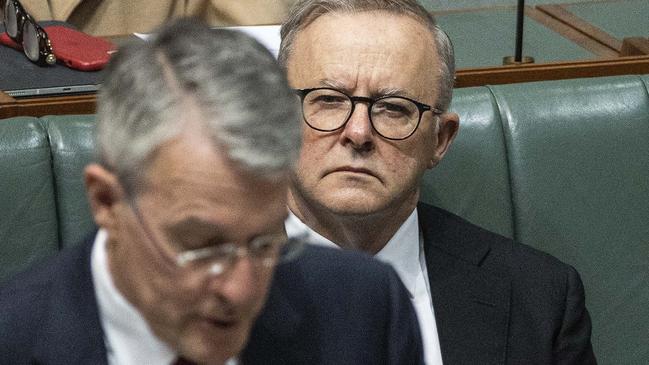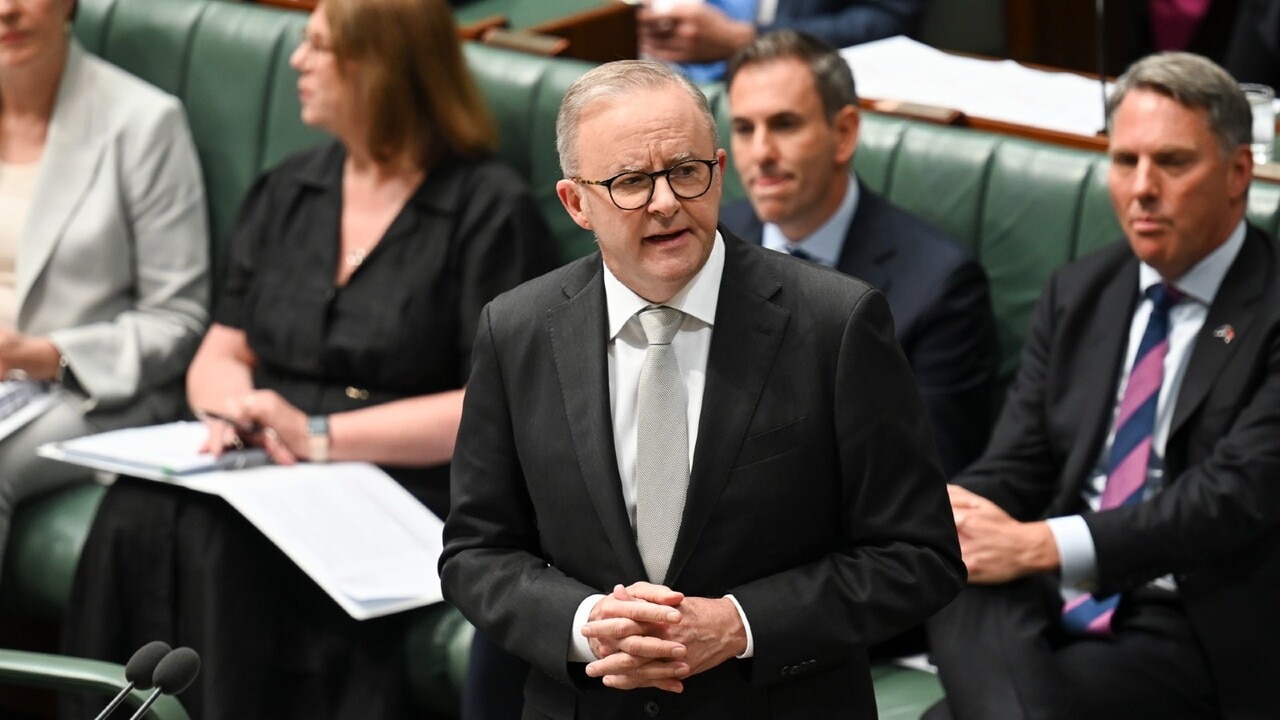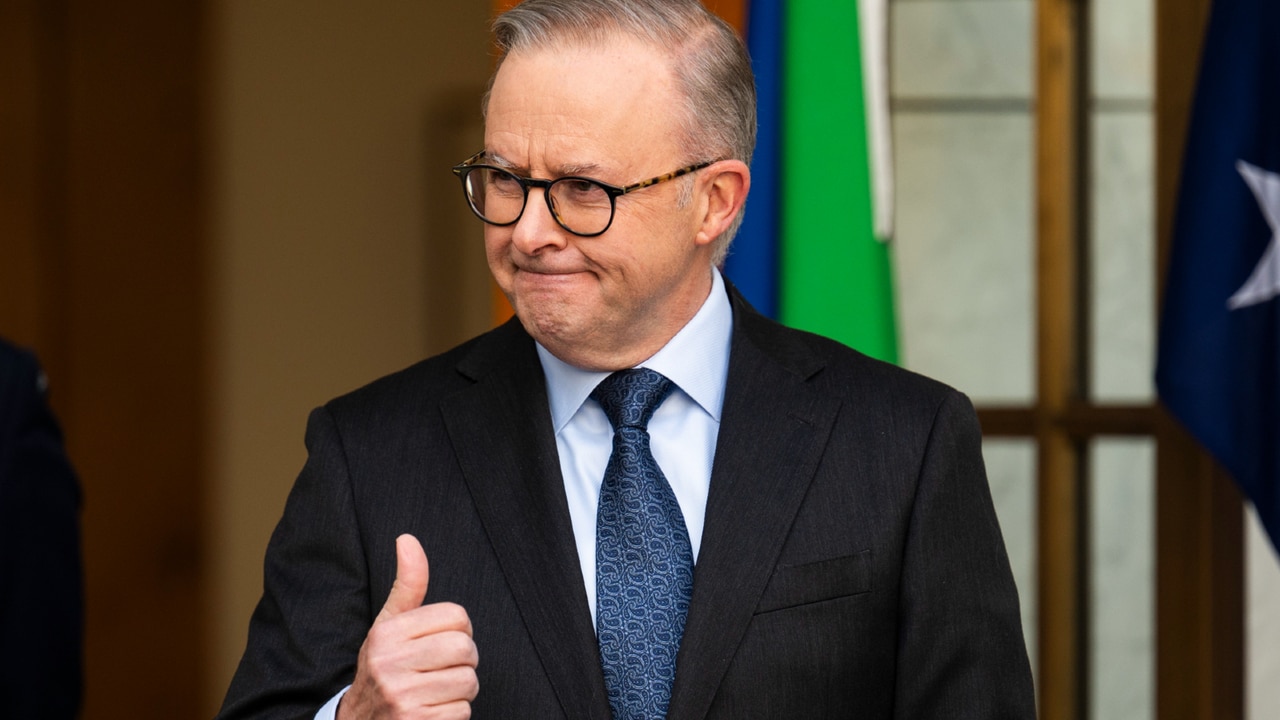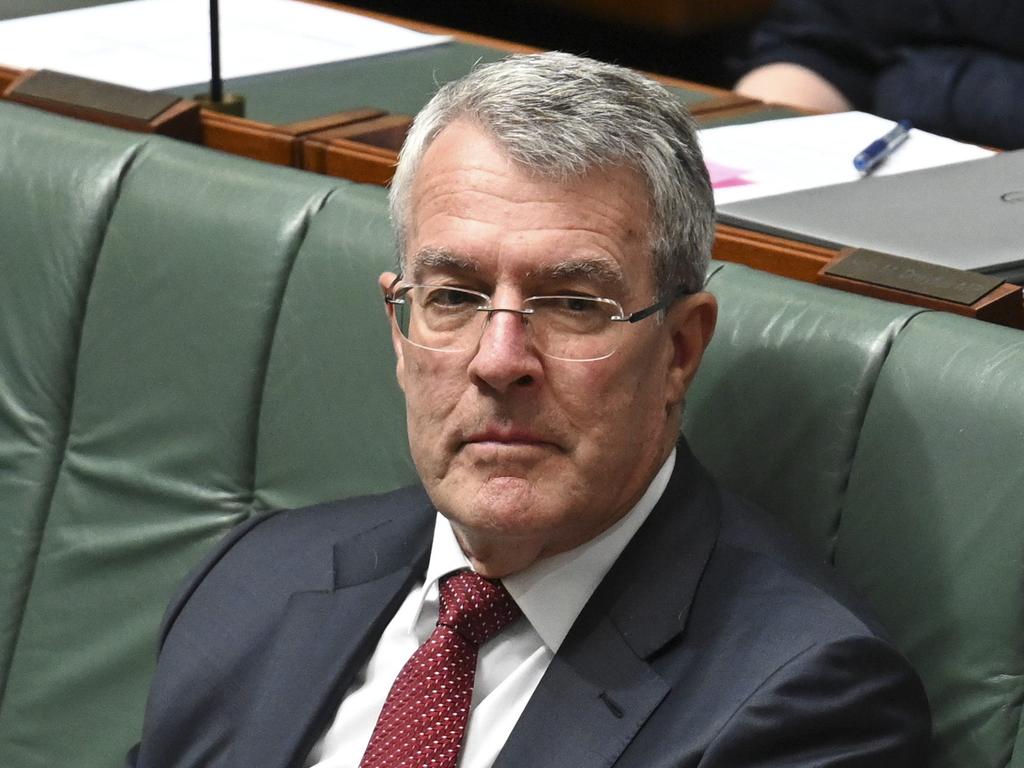Labor’s hate speech bill faces widespread resistance from religious leaders
Attorney-General Mark Dreyfus’s hate speech bill is facing widespread resistance from religious leaders, with some warning it doesn’t go far enough and others concerned its scope is too far reaching.

Attorney-General Mark Dreyfus’s hate speech bill is facing widespread resistance from religious leaders, with the the peak Jewish body warning it didn’t go far enough in stamping out more scandalous forms of public hate and the Anglicans concerned its scope is too far reaching.
In yet another legislative challenge for Anthony Albanese ahead of the federal election, similar to the backlash over his religious discrimination reforms, faith leaders have split on whether the bill - designed to show Australians there is no place for behaviour that seeks to divide the community - achieves an effective balance.
Under Labor’s proposed hate speech laws, it will be a serious criminal offence to threaten to use force or violence against a group, or a member of a group, where a reasonable member of the targeted group fears the threat will be carried out.
If the hate speech threatens the peace, order and good government of the Commonwealth, the maximum penalty increases from five years to seven years imprisonment.
Amid heightened tensions over the conflict in the Middle East, the Executive Council of Australian Jewry said the test for whether hate speech should be criminalised should change from “urges another person, or a group, to use force or violence” to “promotes, advocates or glorifies the use of force or violence against another person, or a group”.
The ECAJ noted messages to audience members urging them to engage in violence were often subliminal - conveyed through verbal signals and symbolism with vague language – rather than stated expressly.
The “reasonable member” test should be removed and a new federal serious vilification offence should be introduced as a priority.
The ECAJ said the bill was a “modest step in the right direction” but it didn’t go far enough to provide an effective response to “even to some of the more scandalous forms of hate speech that have reportedly been published with impunity”, citing last year’s pro-Palestinian protest on Sydney Opera House’s forecourt where an Israeli flag was burned and chants of “f**k the Jews could be heard.
“We believe that if the bill were to be enacted in its present form, future instances of public hate speech of this kind will continue to go unprosecuted, and the Australian public’s expectations of this area of the law will remain unfulfilled,” the ECAJ said.

Michael Stead, Anglican Bishop for South Sydney, said the government’s proposal to extend hate speech protections to people based on their gender, sexual orientation, gender identity, intersex status and disability could be problematic because the terms weren’t defined.
“(This) creates significant uncertainty as to the scope and operation of the provisions,” he said in the Sydney Anglicans’ submission.
“We are also concerned that the notion of ‘force or violence’ will be interpreted to include psychological injury and as a result will undermine existing exemptions provided to religious institutions in Commonwealth law.”
The Anglicans want ‘violence or force’ to relate to physical harm only, not psychological, fearing their religious teachings could be captured.
“For example, if a religious minister requires youth leaders only to engage in sexual conduct permitted by the Bible, and that those who do otherwise will not be allowed to hold a leadership position in the church, would a reasonable member of the LGBTI community consider such to be a threat of violence or force, on the basis that the exclusion leads to psychological harm, and harm is violence? On that basis the minister’s conduct would be criminally unlawful,” Dr Stead said.
Like the ECAJ, the Islamic Council of Victoria said there should be a lower threshold for offenders to be charged and prosecuted under the proposed laws.
“It may often be difficult for victims of prejudice-motivated offences to prove the subjective intentions of an offender, being that they intended for violence to occur on the basis of a protected attribute,” the ICV said.
“However, a lack of intention for violence to occur does not make the offence of urging or threatening force or violence any less dangerous, and these offences are still highly traumatic and harmful to the victim regardless of the offender’s intention.”
The council also warned the Albanese government’s criminalising of terrorist organisation symbols, including a symbol that is “likely to be confused with or mistaken for that symbol”, risked conflating religion with terrorism and laid the groundwork for the demonisation of religious symbols.
The hate speech bill toughens Labor’s laws criminalising the public display of Nazi and terrorist organisation symbols if it is likely to offend, insult, humiliate, or intimidate certain groups, by expanding the list of groups to include those distinguished by sexual orientation, gender identity and intersex status.
“This year various prominent media outlets inaccurately claimed that pro-Palestine protestors in Melbourne were carrying a Hamas flag, described by the Chair of the Anti Defamation Commission and several media publications as a ‘declaration of war’ and ‘insidious (and) frightening’ antisemitism,” the ICV said.
“In reality, the image referred to by these commentators was of Shia Muslims in Melbourne attending a celebration on the day of Ashura, a holy day of commemoration in Islam, carrying a green flag with Arabic text which appeared to commemorate Imam Hussein, an exalted figure among Shia Muslims.”

The Australian Christian Lobby lashed the bill for creating serious criminal offences while using “uncertain terminology that is satisfied at such a low threshold”, saying it had the potential to suppress someone on ideological grounds or “even to criminalise political beliefs and expression contrary to a government-approved orthodoxy”.
“The potential for this law, if enacted, to turn Australia into a police state in the future, in which the government-of-the-day is able to suppress contrary viewpoints on the pretext of combatting ‘hate speech’ or “incitement to violence”, is concerning,” the ACL said.
“The powers granted to government far exceed the purposes for which it is claimed they are required. The ACL recommends the bill be abandoned, or significantly amended ... to comply with the requirements of international law and to ensure free speech is protected, definitions are clear, and all thresholds and grounds for criminal offences are clear, robust and objective.”
The Prime Minister ultimately shelved his election promise to introduce a religious discrimination act when he couldn’t reach bipartisanship, fuelling anger among people of faith and equality advocates.
The hate speech bill would also make it a criminal offence where a person was “reckless” as to whether the force or violence urged against a group will occur, lowering the existing requirement for the prosecution to prove “intent” behind the urging of force or violence.
An existing “good faith” defence would be removed, with Mr Dreyfus arguing there were no circumstances where urging force or violence against a targeted group or its members could be done in good faith.
A Senate inquiry is due to hand down its report into the hate speech bill on December 12, meaning it can’t be considered by parliament this year. But government sources said there was a desire to get the bill passed before the election.






To join the conversation, please log in. Don't have an account? Register
Join the conversation, you are commenting as Logout